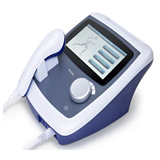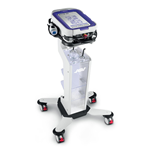Kathryn North, Professor of Paediatrics and Child Health at the University of Sydney will lead the Centre of Research Excellence in Neuromuscular Disorders (CRE-NMD) recently announced by the National Health and Medical Research Council.
Professor North says:
"We now have a golden opportunity to transform our approach to these disorders from 'compassionate assistance' to targeted treatment and prevention, to ensure that the latest discoveries are rapidly translated into tangible health outcomes for patients, their families, and the community."
Professor North, who is also head of the Institute for Neuroscience and Muscle Research based at the Children's Hospital at Westmead, has over 20 years of research experience in neurogenetic disorders - including gene discovery and analysis of patient biopsies, and cell and animal models of disease. She says
there is a wide range of severity in neuromuscular disorders (NMDs), ranging from death in infancy or early childhood due to inability to breathe or swallow, through to the onset of chronic and progressive weakness in childhood or adulthood.
"Most patients live with lifelong disability and are unable to work or even care for themselves. The collective impact on patients and their families is enormous," states North.
"These disorders are characterised by progressive muscle weakness, loss of the ability to walk or perform normal daily activities, and in many cases weakness of the respiratory muscles leading to early death."
Professor North also established the Clinical Neuromuscular Service at the Children's Hospital at Westmead which cares for over 1000 patients.
"Until recently, the diagnosis of patients with NMDs was limited to a descriptive 'label' based on clinical and pathological findings. Treatment was limited to a management plan of physical interventions and community assistance," she says.
While there has been an explosion of knowledge over the past decade about the genetic basis and pathophysiology of NMDs, Professor North believes the establishment of the CRE heralds major breakthroughs for neuromuscular disorders and their treatment strategies.
"Ten years ago it was only possible to diagnose accurately around 10 percent of patients. Today, we are diagnosing over 60 percent, and our rate of discovery is accelerating."
Professor North says the diagnosis, prevention and treatment of NMDs will benefit considerably from the CRE.
"There is now the potential for targeted therapies that may halt or reverse weakness in these previously untreatable disorders."
The CRE-NMDs aim is to translate 'best evidence' from clinical and laboratory-based research, including gene discovery, disease mechanism and therapy development, into 'best clinical practice' under two themes of diagnosis and prevention and treatment.
The centre will take Australia's existing research and clinical activities in this field to a new level, positioning Australia as an international leader in translational research in NMDs.
Professor North said:
"The CRE-NMD will consolidate our place at the forefront of neuromuscular research internationally. We are currently leaders in gene discovery and diagnosis, and the CRE-NMD will elevate us to leaders, rather than participants, in the treatment of NMDs. The centre will allow us to build a critical mass in all areas of basic and clinical research into disorders of muscle and nerve."
"It will foster international partnerships to ensure the sustainability of excellence in neuromuscular research, and ultimately vastly improve health outcomes and quality of life for thousands of patients and their carers."

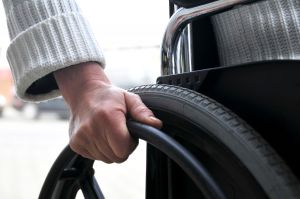











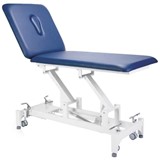

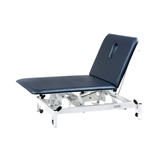

-160x160-state_article-rel-cat.png)




